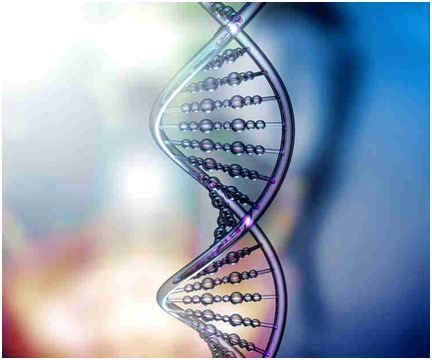This is a topic that I don’t think many people are aware of, including the average conventional medical doctor. I know that I didn’t learn anything about how certain genetic variations can affect hormones (and therefore menstrual-related symptoms) until I was well into my complementary/alternative medical training. It is a fascinating and highly relevant topic when it comes to managing hormonal symptoms.
SNPs: What are they?
When I say “genetics” I am referring to something called SNPs, single nucleotide polymorphisms. They are basically variations of genetics found in a percentage of the population. They occur in DNA, usually the DNA found between genes. When a SNP (“variant”) is present, it means that the function of whatever protein it was coding for can be compromised. When function is compromised, it means that a protein may be less active or more active than it should be. This can lead to increased risk of certain diseases or “issues” in the body. Researchers have found SNPs that may help predict an individual’s response to certain drugs, susceptibility to environmental factors such as toxins, and risk of developing particular diseases. If you are aware of your SNPs, you can do something to counter-balance them- eg taking a certain nutritional supplement, altering your diet in a specific way. This is the good things about knowing your SNPs- you can make changes to support your genetics in the best way possible for you.
SNPS and Hormones
SNPs often come up in my discussions with my patients about hormone metabolism. There are a few SNPs that can affect how women (and men) metabolize estrogen. If a certain SNP or pattern of SNPs is present, it can lead to a build-up of “strong estrogens” in the system that can cause problems. when estrogen is metabolized, there are a few pathways it can “choose” to take as it is excreted from our system. Some of these pathways are safer than others. One of the pathways can lead to the production of what we call a “strong” estrogen. Having a large amount of the “strong” estrogen is thought to be associated with conditions of estrogen dominance, such as fibroids, heavy periods, PMS, etc. They also potentially over time can increase cancer risk if there are other circumstances present that simultaneously raise cancer risk. Without going into complicated detail, the bottom line is that the goal is to have your estrogen metabolized into weak, safe metabolites that are excreted properly.
Managing SNPs
If you have one or multiple SNPs, there are always things that can be done to offset their effects. For example, taking folic acid, vitamin B12 and magnesium can help offset a SNP in one area of your estrogen metabolism. Taking a broccoli extract known as I3C or DIM can offset a SNP in another area of estrogen metabolism. When the supplements are taken, there will be a noticeable change in your estrogen metabolites when assessed by urine testing. And this may be accompanied by a reduction in menstrual-related symptoms
Testing for SNPs and Hormone Metabolites
If you want to know if SNPs are present, you can do SNP testing. This can be ordered through an integrative MD or naturopath who is specializes in this area. When you have your SNPs tested, it will check for SNPs in many areas, not just hormones- you will find out about cardiovascular risk factors, how you metabolize certain vitamins, how you metabolize fats and carbs, etc. You will be recommended to take certain supplements and to adjust your diet in a certain way , based on the results.
Having your hormone metabolites tested is another thing you can do to measure actual hormone levels. If you suspect a SNP or if you have hormonal symptoms, you can measure your urinary hormone metabolites with a DUTCH test (dried urine test, click here for more info). This will show all of your hormone levels and how they are broken down- which is affected by both SNPs and diet/supplements. Based on this test you will know if you should be on supplements to support hormone metabolism or if you are already on supplements, if they are doing the job properly.
And if you don’t do either of these tests but you have symptoms indicating you have estrogen dominance (click here to review these), you can be treated for a suspected SNP and take a combination of B vitamins and broccoli extract to “take care of things” in case you do have one.
The main message:
Knowing about SNPs and that there are ways we can “manipulate” our own hormone metabolism to reduce risk is important. It gives you more control over your health and wellness, it allows for yet another way to have your medical care personalized.

